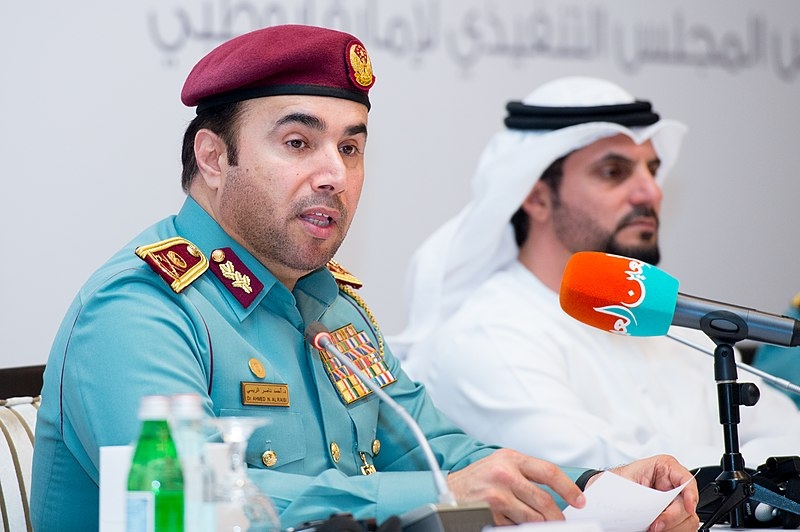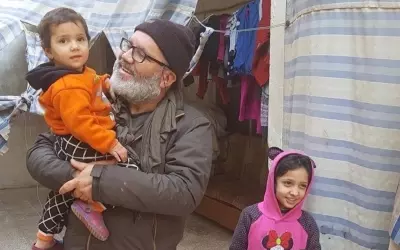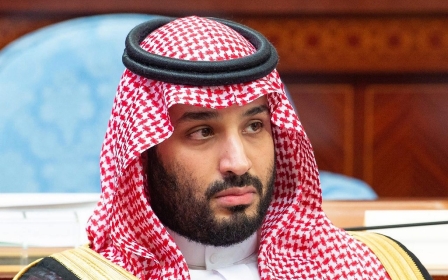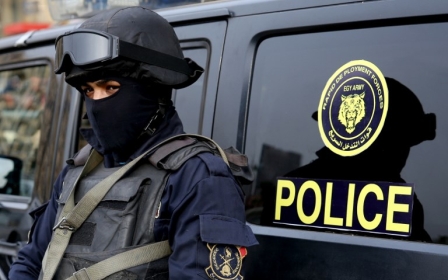UAE police chief accused of torture 'frontrunner for top Interpol job'

A United Arab Emirates security chief accused of presiding over the "torture” of a British student is attempting to become the new head of Interpol, according to a story in the UK’s Daily Telegraph newspaper.
Major General Nasser Ahmed al-Raisi has been accused of serious human rights abuses in the Middle East, including against British citizens, and Interpol has been warned it could lose credibility if he is elected president, according to the paper, which was given leaked access to Raisi's campaign literature.
A British postgraduate, who says he was fed a cocktail of drugs during his imprisonment in Dubai on spying charges, and a football fan, who claims he was beaten up and electrocuted, accused Raisi of being responsible for torture and say he should never become president.
'What I suffered in the UAE was very traumatising and it will scar me for life'
- Ali Ahmad, British citizen
Matthew Hedges, a Durham University PHD student, was held for almost six months in solitary confinement after being arrested at Dubai airport in May 2018 on suspicion of spying for the British security services.
Hedges claims his calls were monitored, that he was made to sign a false confession and that he was given a combination of strong drugs to combat his panic attacks.
New MEE newsletter: Jerusalem Dispatch
Sign up to get the latest insights and analysis on Israel-Palestine, alongside Turkey Unpacked and other MEE newsletters
He was sentenced to life in prison after a brief hearing, despite British authorities publicly denying he was an agent. He was handed a presidential pardon later on in the year after international pressure.
As inspector general in the Ministry of the Interior, Raisi is in charge of organising and managing the security and police forces in the UAE, and “was ultimately responsible for my torture and detention”, Hedges told the Telegraph.
'Electrocuted, denied food and drink'
Hedges’ alarm about Raisi being elected to one of the most important positions in global security is shared by Ali Ahmad, a British football fan imprisoned for wearing a Qatar shirt to a match.
Ahmad claims he was stabbed with a pocket knife in his chest and arms, struck in the mouth causing him to lose a front tooth, suffocated with a plastic bag and had his clothing set on fire by arresting officers, the Telegraph reports.
A medical report was allegedly falsified, he claims, to say that the injuries he sustained were self-inflicted.
Ahmad spent more than two weeks in prison and says he was electrocuted, denied food and drink, made to sign a confession and denied access to a lawyer.
"I cannot believe that I need to ask an international police group like Interpol not to elect the person [ultimately] responsible for my torture to become their president,” Ahmad told the Telegraph. “What I suffered in the UAE was very traumatising and it will scar me for life.”
Hedges added: "The next president of Interpol should know all about the principle of command responsibility and respect the rule of law.”
Both men have written to Interpol Secretary General Jurgen Stock in order to voice their concerns, according to the Telegraph.
There have been questions raised about the UAE’s influence on Interpol, amid speculation that Raisi is a certainty for the position.
In 2017, the emirate announced that it had donated €50n to support various Interpol projects designed to combat global crime and terrorism.
Stock, who is pictured with Raisi in his campaign material, said: “The generosity of the UAE’s contribution will have a significant impact on strengthening the work of law enforcement worldwide.”
In December, Interpol’s general assembly, where the new president will be announced, is scheduled to be held in the UAE, after the venue had been switched from Uruguay.
UAE trying to 'buy its way into Interpol'
Raisi already sits on Interpol’s executive committee, but has never before run to be president.
Ben Keith, a barrister at 5 St Andrew's Hill, who specialises in international crime, said that the UAE had "effectively tried to buy its way into Interpol".
Speaking to the Telegraph, he said: "This is another attempt by a despotic country to get their person elected as the president of Interpol.
'This is another attempt by a despotic country to get their person elected as the president of Interpol'
- Ben Keith, barrister
"The money is there, the power base is there, they are hosting the assembly. They have effectively tried to buy their way into Interpol. This is the best chance they have and their candidate is clearly the front-runner."
Interpol said: “It would be inappropriate to comment on the allegations” of torture.
It added: “Elections for executive committee positions, including for president, are held during the Interpol general assembly, which this year is scheduled to take place on 7 and 8 December. Candidacies for the executive committee, including the president, can only officially be presented and accepted once the general assembly has opened. Any member country can propose a candidate up until the elections take place.
“As with all decisions at the general assembly, it is a one-country one-vote system, with each vote carrying equal weight. The president is elected through a two-thirds majority.”
Raisi was also contacted by the Telegraph for comment but did not respond.
Middle East Eye delivers independent and unrivalled coverage and analysis of the Middle East, North Africa and beyond. To learn more about republishing this content and the associated fees, please fill out this form. More about MEE can be found here.





